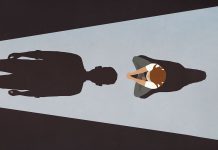One lottery ticket and an unexpected ending
Whether we admit it or not, our lives are conditioned by money—mostly by the lack thereof. There are few who manage to snatch themselves out from under its spell, and even fewer who want it just to be able to give it away. Among the latter is Rachel Lapierre.
COVID-19: When time no longer means money
As a teenager, I remember pasting a quote from Blaise Pascal on the wall of my room. It was a thought I resonated with, not without some arrogance: "All of humanity's problems stem from man's inability to sit quietly in a room alone."
COVID-19: Which end is The End?
As the crisis caused by the new coronavirus deepened and spread, it was to be expected that the phenomenon would be framed in apocalyptic terms. It is something that tends to occur in such contexts.
An impossible inventory of the most widespread fake news about COVID-19
The epidemic of false information in this worldwide pandemic is even more infectious than the virus itself. Fortunately, there is a vaccine for this epidemic of fake news: quality information and information filters. However, not everyone has been vaccinated. Here is an immunization effort.
Are spiritual forces real?
Ideas about death, souls and afterlife existence are often intertwined with religious or spiritual beliefs—in other words, belief in the supernatural. But are spiritual forces present or observable in this world? Do they exist? Can they be observed, defined, categorised? Are friendly ghosts and vengeful spirits lingering in haunted houses real, are the paranormal investigators you see on television really fighting an evil spirit as they claim, or...
This product is a supplement for the mind
In the movie A Beautiful Mind, there is a scene in which the brilliant mathematician John Nash reveals how he manages to function, despite the schizophrenia that has tormented him for years. “I still see things that are not there,” said Nash, “I just choose not to acknowledge them. Like a diet of the mind, I just choose not to indulge certain appetites.”
How can we prepare for a potential infection with COVID-19?
Although a small minority deny the existence of COVID-19 (claiming that it is a malicious conspiracy), most people are interested in what they can do to be as prepared as possible for a potential encounter with the dreaded virus.
Why we don’t follow through when we know we should
But why do our ambitions of self-improvement rarely stick the way we hope they will?
COVID-19: Rehearsal for the big surprise
There has been a lot of speculation in the online environment about COVID-19 and the end of the world, but the connection between the two is more subtle than it first appears. It has been suggested that the pandemic is only the tip of the iceberg, that it is one of the seven last plagues of Revelation, or that it is the fourth...
“I write with a smile on my face”
It's probably been 15 years, but ever since I first read Nathan Brown's articles I've been struck by the conciseness and frankness of his writing, the courage with which he tackles the prejudices and superficialities of religion, and the naturalness with which he invites his readers to live a spiritual life worthy of God's generous offer.
What about the failures that haunt us?
A smooth sea never gave a skilled sailor, said Franklin D. Roosevelt, suggesting that without hardship, challenges and even failures, we cannot become our best selves.
COVID-19: Defending ourselves against fake news and panic
The fight against the new coronavirus is accompanied by several parallel fights, including the fight against fear, which can turn into panic—one of the most dangerous social phenomena.
The relativity of time
Time can exist in many forms—work time, free time, leisure time—and it has a lot of possessive adjectives: my time, your time, our time. The relativity of time can often lead to confusion because of the accompanying mixture of emotions, such as fear, joy, satisfaction, or expectation. It was this relativity of time that led me to need to define it in my...
How disposable are you?
How do we value a human’s life? Should we rate lives on their value to their community? That would mean a life-saving surgeon would have more value than someone living on the street. Or is it potential—which would make a baby more valuable than a 50-year-old? What about the value we place on those later in life versus those at the end?
Mentors for change
In addition to my family of origin, as a child, I had the privilege of knowing valuable people in my life, mostly pastors and musicians, who would pay attention to me, teach me what they knew best, guide me towards a strong value system, and act as role models.


























